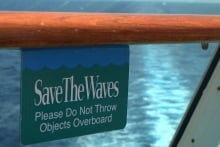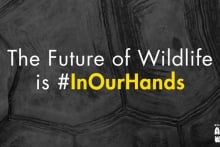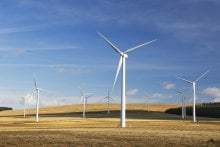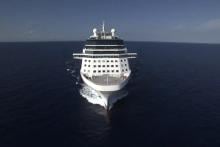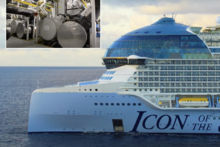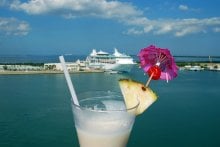Royal Caribbean Group's work is far from done, but it's getting closer than ever to its big eco-friendly goals.
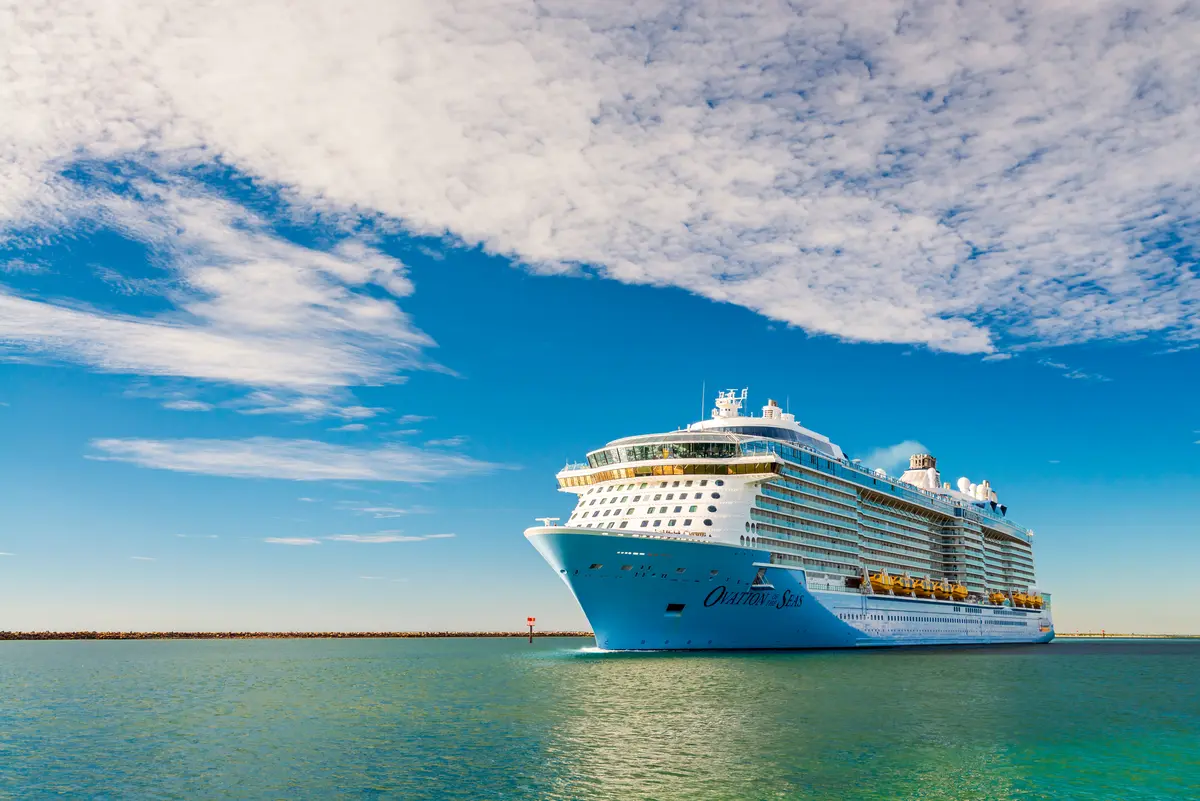
On Monday morning, Royal Caribbean Group released its annual "Seastainability Report", which outlines its environmental goals and progress made to reach them.
In 2023, Royal Caribbean Group advanced its goal of achieving net zero emissions by surpassing half of its carbon intensity reduction target, conducting successful biofuel trials in Europe, and launching the first waste-to-energy system on a ship in the maritime industry.
Plus, there are the overarching goals of reducing carbon intensity by double-digits by 2025 and introducing a net-zero cruise ship by 2035.
Highlights from the report
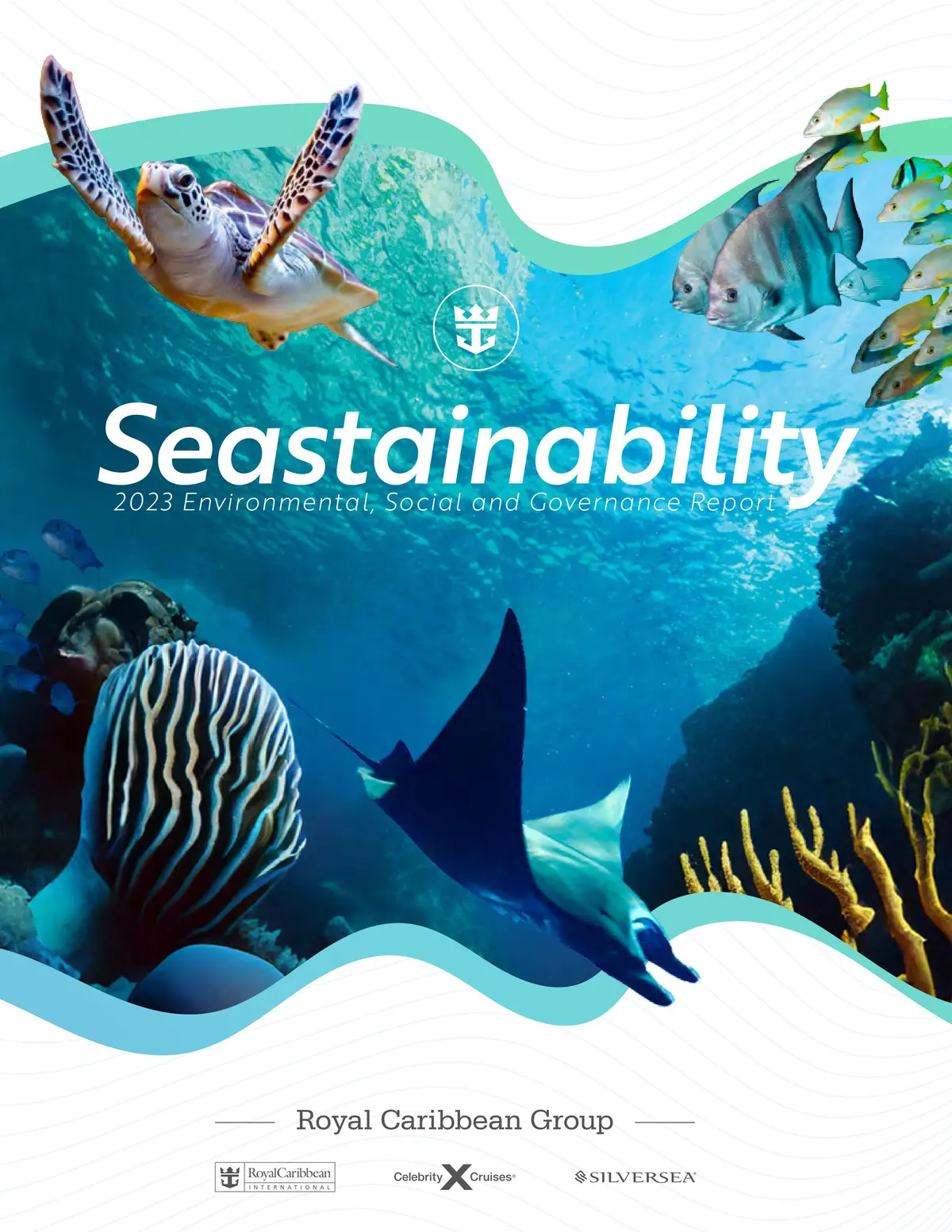
Here are the major achievements reported in this year's report:
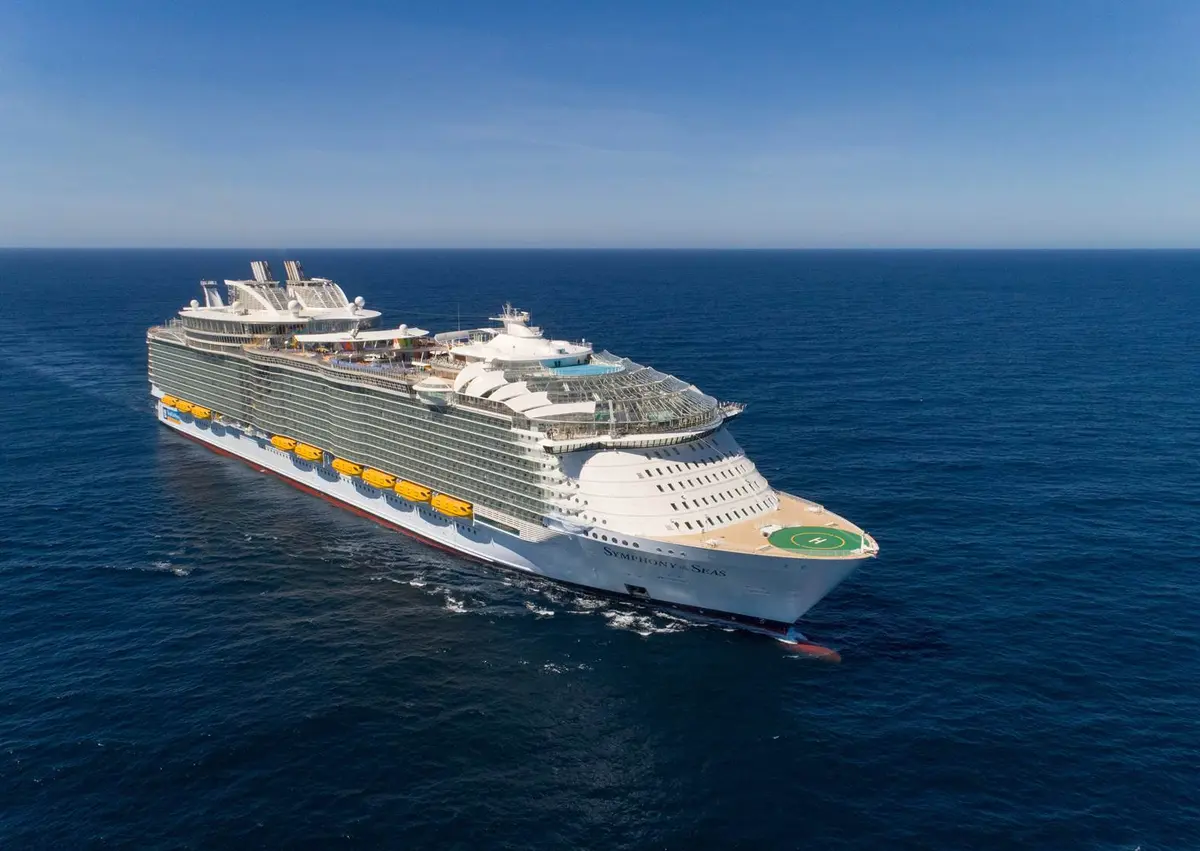
Sustainability
- Achieved a 6.8% reduction in carbon intensity, surpassing half of its ambitious carbon intensity reduction goal.
- Expanded energy options following successful biofuel trials, demonstrating that alternative fuels can be integrated without modifying engines or affecting onboard systems.
- Enhanced global local sourcing, cutting transportation distances by 37%, which supports local communities and reduces Scope 3 emissions in certain areas.
- Advanced marine species protection through the Shellbank program, using genetic technology to match DNA of critically endangered sea turtles to specific sites for conservation and to combat illegal harvesting.
Community Support
- Introduced Royal Caribbean International's Artist Discovery Program, featuring emerging Caribbean artists aboard the new ship, Icon of the Seas.
- Developed specialized training programs for Bahamian entrepreneurs through the Small Business Development Centre's (SBDC) Royal Caribbean Kickstarter Programme, aimed at boosting local tourism-related businesses.
- Debuted the first accessible Star Class suite on Icon of the Seas, enhancing inclusivity.
- 100% scored on public health inspections on 10 ships, with a 97.3% average fleet wide between Royal Caribbean International and Celebrity Cruises.
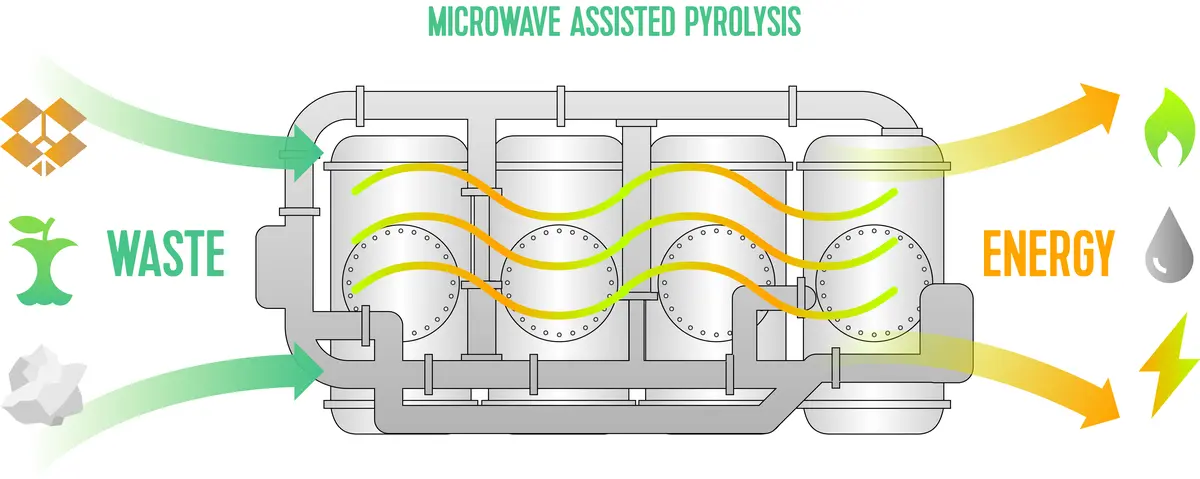
Innovations
- Launched the first at-sea waste-to-energy systems on Silver Nova and Icon of the Seas.
- Initiated construction of the first tri-fuel methanol-capable ship, Celebrity Xcel.
- Extended the partnership with the University of Miami's OceanScope, providing additional funding to support over two decades of ocean conservation and research on Royal Caribbean Group ships.
Partnerships
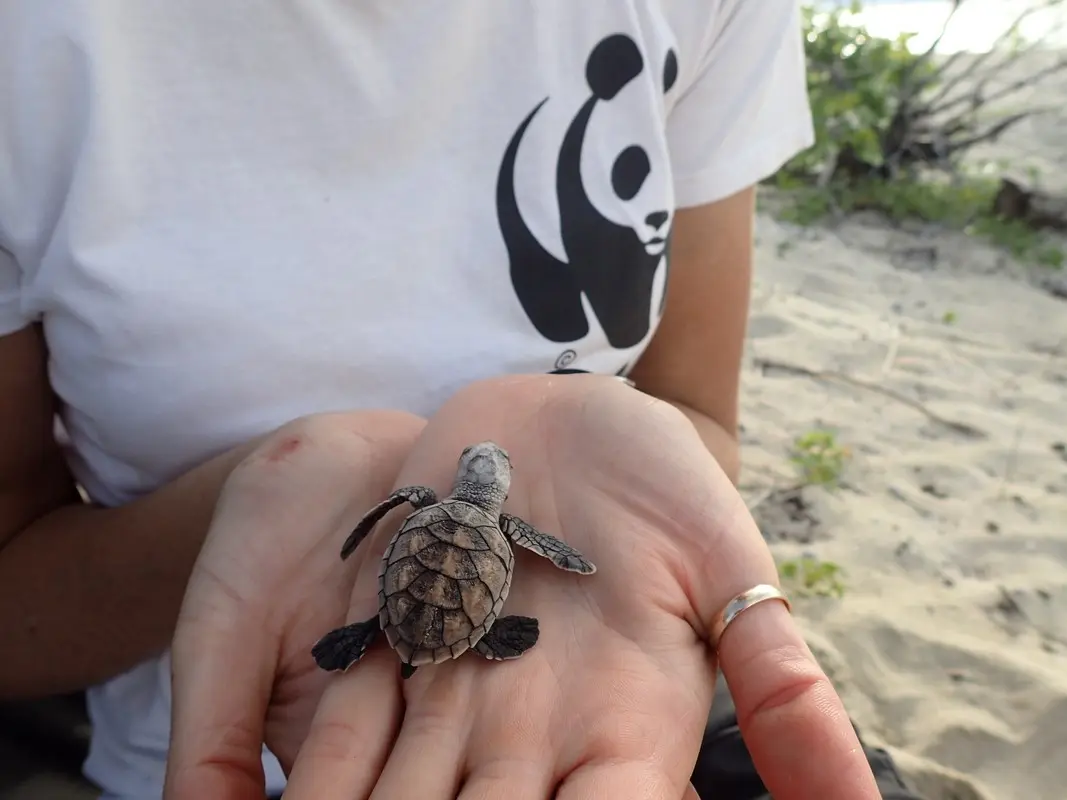
Royal Caribbean Group has three primary groups they work with to assist on their journey.
For the past 20 years, they've worked with University of Miami’s OceanScope program to share ocean data.
Since 2016, the World Wildlife Fund has been a partner in supporting conservation efforts, such as the Hawksbill Turtles, Polar Bears, and Whale Sharks.
The company also supports Shellbank, which is a genetic technology program that matches DNA of critically endangered sea turtles to specific locations to create priority conservation sites and prevent illegal harvesting.
Net Zero progress
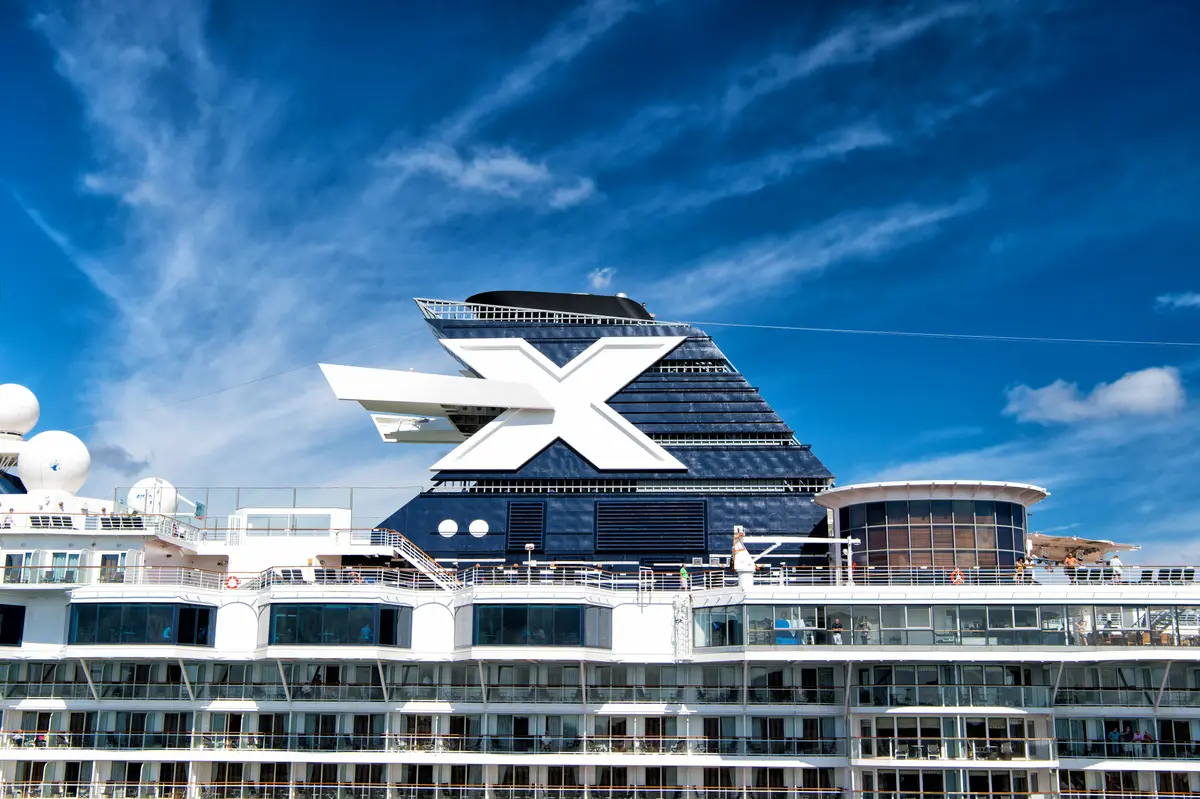
| Goal | 2023 Progress |
|---|---|
| Reduce our carbon intensity by double digits from a 2019 baseline by 2025 | • 6.8% reduction in carbon intensity • Completed 50 energy-efficiency retrofit projects, including steam turbine and LED lighting system upgrades • Grew portfolio of fuel options with first LNG-powered ship and successful biofuel trials • Debuted Total Energy Management (TEM) system to optimize energy performance • 30 ships with shore power capabilities as of year end |
| Achieve net-zero GHG emissions by 2050 | |
| Deliver net-zero cruise ship by 2035 | • Completed successful biofuel trials on three ships • Launched Silversea’s Silver Nova, which is 33% more energy efficient than required for ships today • Started construction on Celebrity Xcel, our first tri-fuel methanolcapable ship (2025 delivery) |
Water sustainability
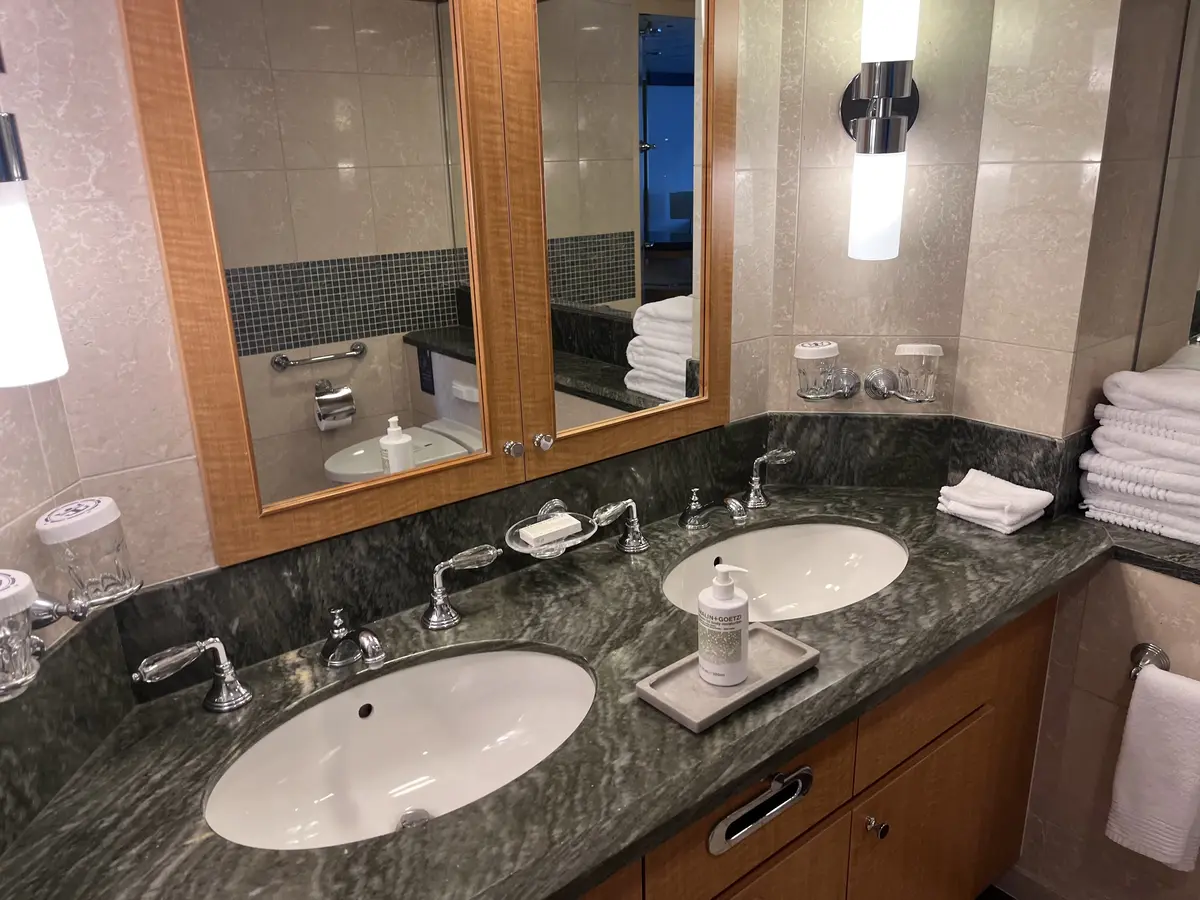
| Goal | 2023 Progress |
|---|---|
| Increase or maintain 90% potable water production and reduce potable water bunkering in vulnerable areas by 2025 | • 93% potable water production |
| Equip 100% of fleet with Advanced Wastewater Purification systems by 2025 | • 98% equipped |
| Equip 100% of fleet with IMO and USCG certified systems for ballast water by 2025 | • IMO 100% • USCG 74% |
Waste management
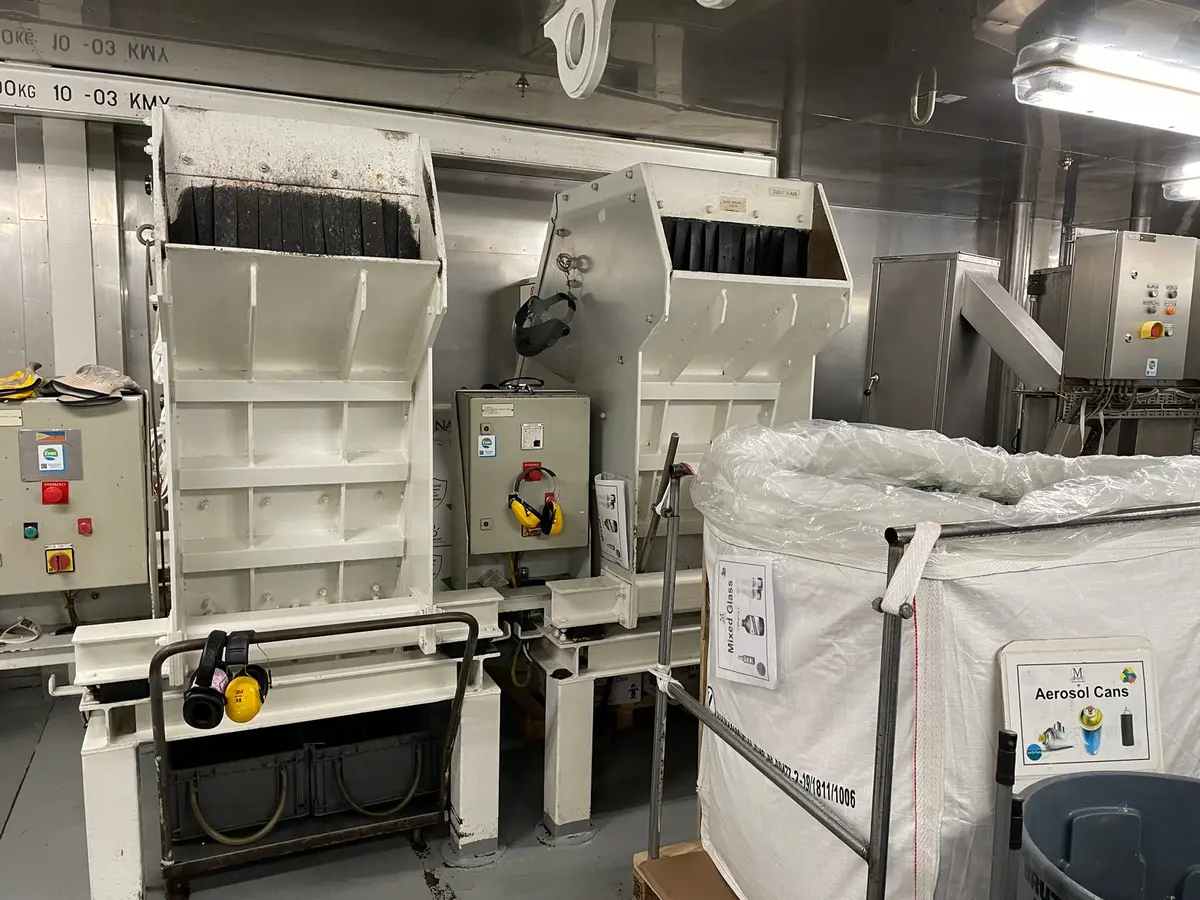
| Goal | 2023 Progress |
|---|---|
| Reduce solid waste offloaded to landfill by 90% from the 2007 baseline by 2025 | • 87% reduction • Expanded Green Hub program to Galápagos • Launched the first waste-to-energy system at sea |
| Reduce single-use plastics 100% by 2025 | • 60% reduction • Relaunched phase three of our plastics reduction program, focused on food containers and water bottles, after adjusting for impact on the environment and guest feedback |
| Reduce food waste across our fleet by 50% by 2025 | • 25% reduction |
Supply chain
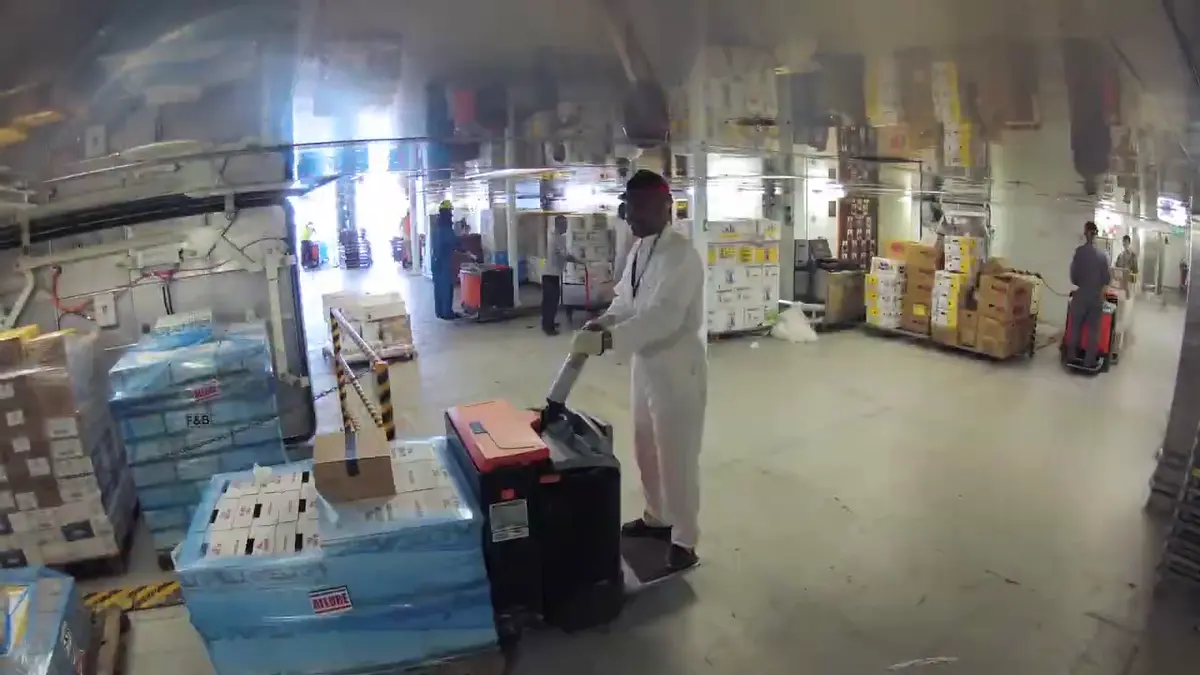
| Goal | 2023 Progress |
|---|---|
| Implement program to foster an inclusive and diverse supply chain through our procurement process by 2024 | Operationalized our supplier onboarding portal, providing additional insights that inform our decision making |
Sourcing Goals
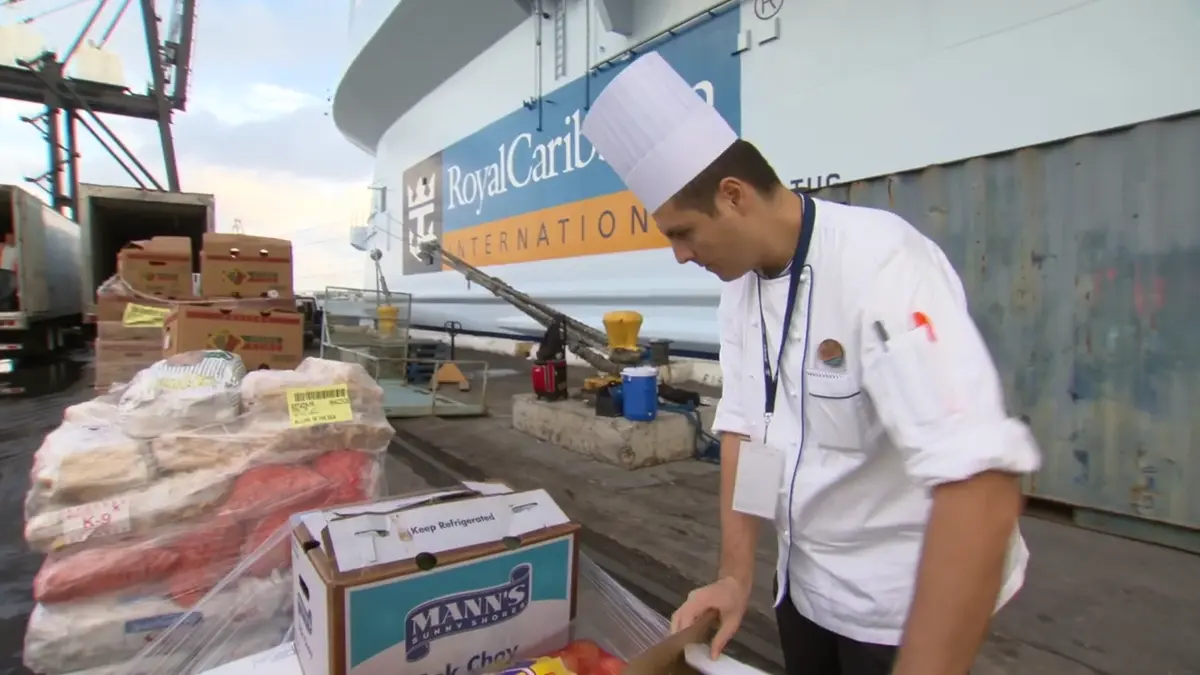
| Goal | 2022 | 2023 | Progress |
|---|---|---|---|
| Source 100% cage-free eggs globally by 2025 | 52% | 54% | The global egg shortage due to highly pathogenic avian influenza disrupted our egg supply chain in 2023. We are partnering with new suppliers to reach our 2025 target and are testing new preservation options, such as frozen cage-free eggs. |
| Source 100% of chickens for U.S. operations from Global Animal Partnership (GAP) certified suppliers by 2025 | 20% | 96% | We made significant progress in 2023, well above our internal goals for the year. |
| Source 100% gestation-crate-free pork globally by 2025 | 15% | 45% | Sourcing gestation-free pork is challenging in a competitive marketplace, yet we partnered with three new suppliers to stay on track for 2025. |
| Source 90% of wild-caught seafood by volume from Marine Stewardship Council (MSC) certified fisheries18 by 2025 | 83% | 31% | We faced a setback when Maine lobster fisheries lost their MSC certification. This resulted in a reduced percentage of our volume meeting commitment. We are in the process of identifying new opportunities and engaging in conversations with MSC. |
| Source 75% of farm-raised seafood by volume from Aquaculture Stewardship Council (ASC) certified fisheries by 2025 | 75% | 69% | We remain on track to meet our 2025 target. |
| Obtain MSC and ASC Chain of Custody certification for specified species for our ships by 2024 | Updated | We updated our goal from 2023 due to a change in the MSC & ASC Chain of Custody Standard specific to the certification type we plan to use. We aim to complete certification in 2024. |
Workforce
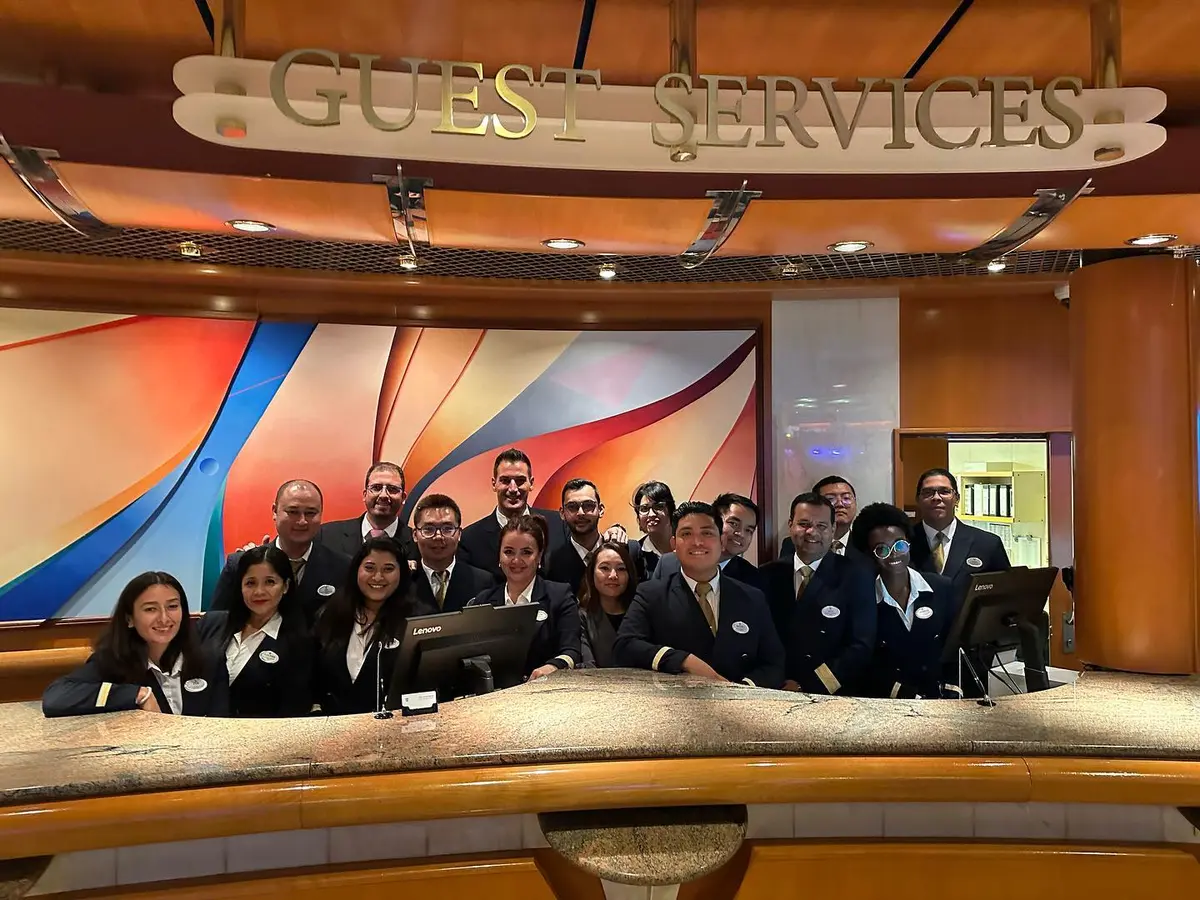
| Goal | 2023 Progress |
|---|---|
| Form an Executive Diversity Council, chaired by CEO by 2023 | • Achieved |
| Review gender pay equity annually for all global employees, including shipboard crew, by 2024 | • Expanded assessment beyond U.S. to include United Kingdom, Philippines, Mexico and Monaco shoreside locations; on track for all global employees and shipboard crew by 2024 |
| Publish updated human rights policy and conduct human rights impact assessments by 2025 | • On track to be published in early 2024; on track to complete assessments by 2025 |


